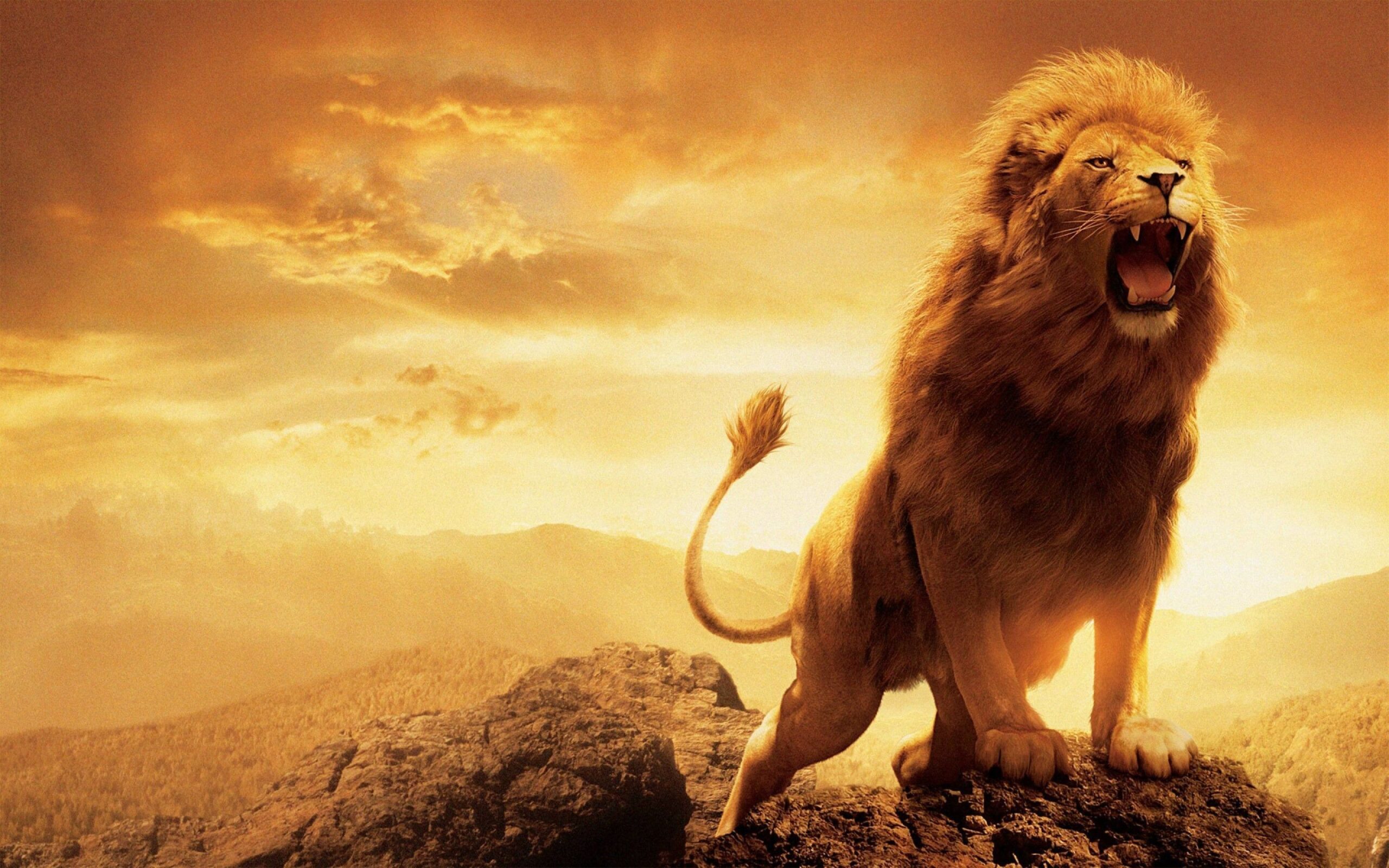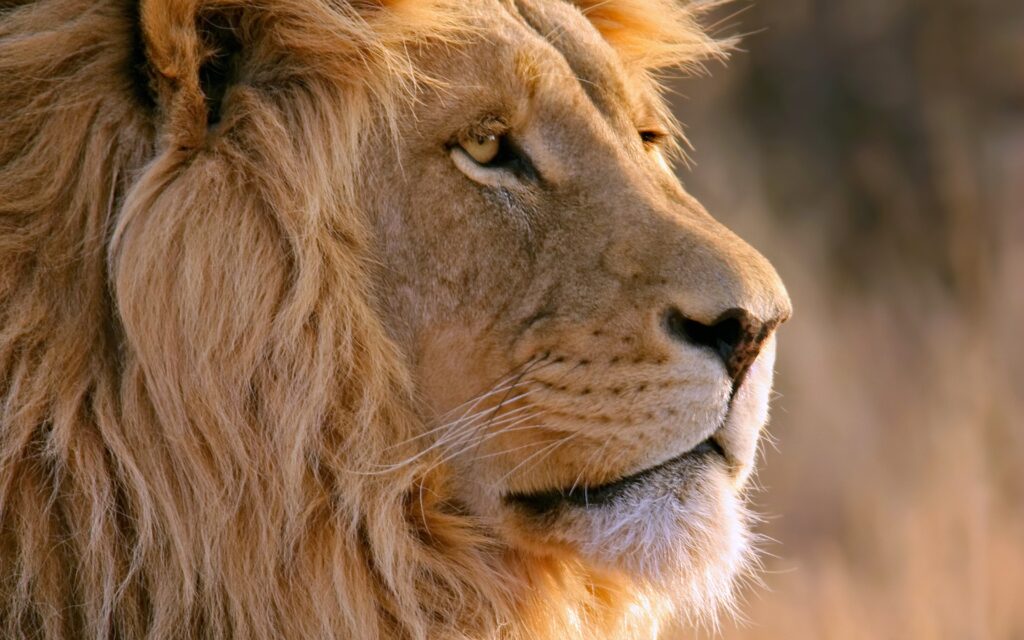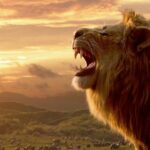Lions have long been revered as symbols of strength, power, and courage across cultures and civilizations. Their majestic appearance, dominant behavior, and unparalleled prowess in the wild have made them one of the most iconic animals in history. But what exactly is it about lions that earns them such a reputation? From their physical characteristics to their role in folklore and religion, there are several reasons why lions have come to embody strength.
Impressive Physical Power
Lions are the embodiment of raw physical strength. Male lions can weigh up to 250 kg (550 lbs) and possess a muscular build that is designed for power and endurance. Their strong jaws and sharp teeth can tear through tough hides and bones, allowing them to bring down large prey such as buffaloes, antelopes, and even giraffes. Their powerful forelimbs, sharp claws, and agility make them formidable predators in the wild.
The lion’s muscular physique is built not only for hunting but also for defending its territory. A lion’s roar, capable of being heard from miles away, adds to its fearsome presence, further cementing its image as an unstoppable force of nature.
Apex Predator Status
As apex predators, lions sit at the top of the food chain in their natural habitats. They are not preyed upon by other animals, and only a few rivals, such as other lions or occasionally a large herd of elephants, pose a threat to them. This position at the top of the food web reinforces the idea of the lion as an indomitable force. The lion’s ability to survive and thrive in the wild, despite harsh conditions and competition for food, has contributed to its symbolism as a creature of supreme strength and endurance.
Social Strength – The Power of the Pride
While the lion’s physical strength is undeniable, its social structure plays an equally important role in its symbolism of strength. Lions are the only big cats that live in groups, called prides. Within the pride, males and females work together to ensure survival. The males defend the pride and its territory, while the females do most of the hunting. This cooperative social structure showcases not just individual strength but the power of unity and teamwork.
The bond between pride members, the strategic hunting tactics, and the shared responsibility of protecting the young all contribute to the perception of the lion as a symbol of collective strength. The pride’s ability to thrive through cooperation demonstrates that true strength isn’t only about individual power, but also about the strength of unity and collaboration.
Symbolism in Mythology and Culture
Lions have held significant symbolic value in many cultures for centuries. In ancient Egypt, lions were associated with the sun god Ra and were often depicted as guardians of temples or royal tombs. The lion-headed goddess Sekhmet, the goddess of war and healing, was a fierce protector and a symbol of strength, representing both destruction and renewal.
In Europe, lions have long been symbols of royalty and courage, often depicted in royal coats of arms and flags. In Christianity, the lion is a symbol of divine strength and justice, representing the power of Christ. Lions also appear in Hinduism, where Lord Vishnu, in his Narasimha (half-lion) incarnation, is a powerful protector of dharma.
Across these various cultures, the lion’s strength is often equated with the power of kings, gods, and warriors, further solidifying its status as the ultimate symbol of strength.
The Lion as a Metaphor for Courage and Leadership

Beyond physical and social attributes, the lion’s symbolism of strength is also tied to its embodiment of courage, leadership, and bravery. Lions are often seen as fearless leaders, taking charge in the face of danger to protect their pride. The idea of the lion as a leader who stands resolute in adversity has influenced countless cultural depictions of leadership, often aligning the lion with ideals of wisdom, strength, and the ability to overcome challenges.
In literature, art, and even modern leadership training, lions are frequently used as metaphors for strong leaders who exhibit courage in the face of overwhelming odds. The lion’s unwavering confidence and decisive action in protecting its territory or pride resonate deeply with people who seek to lead with strength and integrity.
The Lion’s Endurance and Resilience
Lions are not only strong in the moment but also resilient in the long term. Their ability to survive in harsh environments, such as the African savannah, demonstrates a remarkable endurance that aligns with the qualities of strength. Lions endure difficult hunting conditions, extreme weather, and the challenges of competition from other predators. This endurance, the ability to push through adversity, and the refusal to yield in the face of hardship make the lion a symbol not just of physical might but of mental and emotional strength as well.
Conclusion
Lions have rightfully earned their reputation as symbols of strength, not just for their impressive physical attributes but for their role in cultures, their social structures, and their endurance. From their mighty roars that echo across the plains to their powerful presence in mythology, lions represent the ultimate embodiment of power, courage, and resilience. Whether in the wild or as a metaphor in our everyday lives, the lion continues to inspire awe and admiration as the true symbol of strength.



